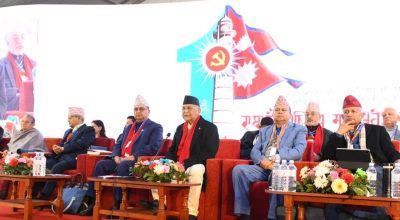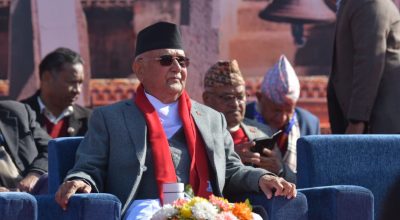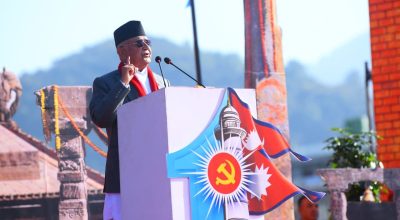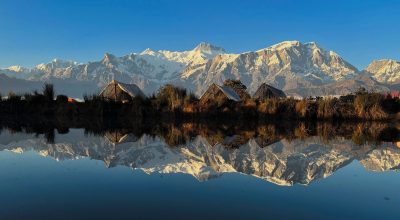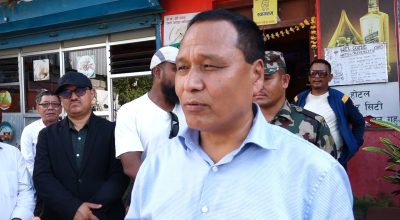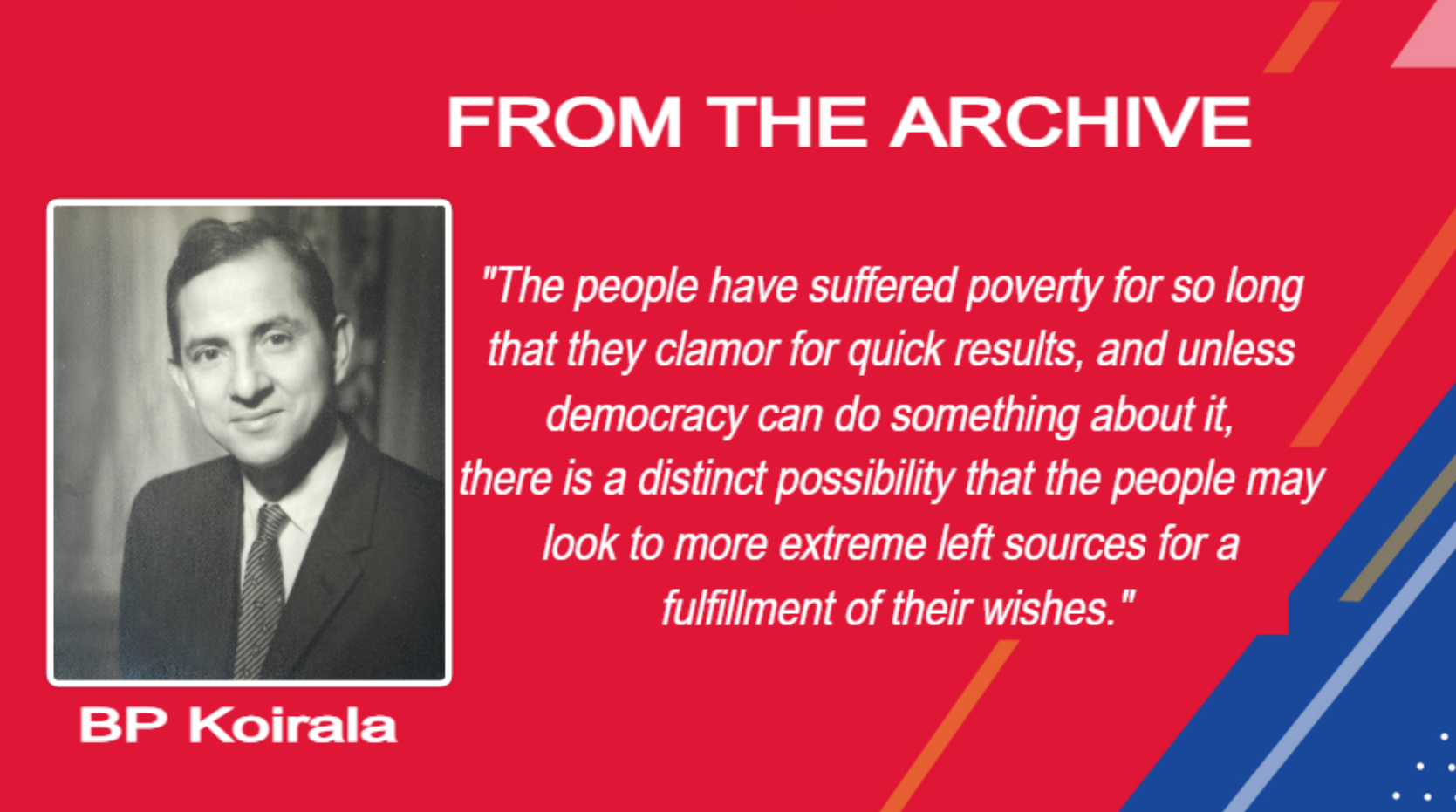
BP Koirala
The consequences of World War II were not just the triumph and tragedy of the victor and vanquished. Its impact was felt in the remotest corners of the globe, and the citadels of imperialism, and colonialism were swept away in quick succession. The countries of Asia and Africa awoke from the slumber and suppression of centuries and drove back the colonial powers to where they belong. Countries which had long lost their identity thus gained nationhood, and many new nations emerged in Asia and Africa.
Strictly speaking, Nepal is not a new nation of this type. It is an ancient land figuring in the oldest legends known to man. Though the ages it maintained its political independence and followed its own tenure of life as a forbidden kingdom. In the hundred-year period between the second half of the nineteenth century and the first half of the twentieth, it was under the despotic rule of a small family which closely resembled the colonialists in its merciless exploitation of the country for personal benefits. In 1950 the people of the country staged a successful revolution which ended the autocratic regime. It is in this sense that Nepal is a new country, much in line with other Asian and African countries that have been coming to birth.
That the democratization of Nepal and the liberation of her Asian and African friends took place in the same period was not just a matter of chronological coincidence. To say that both form part of a tidal wave of resurgence sweeping over the vast continent of Asia will also miss the point, unless it is clearly understood that democratized Nepal and the newly liberated states of Asia and Africa share the same heritage of slumber and suppression.
The new nations of Asia and Africa lack today even the basic minimum of developed nations. With independence, they have before them and around them problems which are highly dangerous to independence. Their newly won sovereignty and independence may mean nothing if they are not able to solve these problems quickly. But these are problems with deep roots and they defy easy solutions. When we look into these specific problems, we feel despondent and do not know where to start. It is essential, however, that we have a thorough understanding of the problems themselves.
THE LEGACY OF POVERTY
Of the specific problems facing the new nations, poverty is one of the most important. Poverty in these countries is a legacy bequeathed by history. It is such a stupendous problem that the temptation is to write it off as insoluble within the immediate future. It is true that in most of these poverty-stricken countries the government is responsible to the people, and politically the people are more conscious than ever before. They recognize and value their democratic right.
These fundamental factors have naturally given aspirations to masses, and they anxiously wait for the day when democracy will deliver them from hunger. But there exist hardly any economic means which could be quickly developed to produce enough to feed these people. The great question, therefore, is how long they will continue to go hungry in their enthusiasm to enjoy and develop their political consciousness.
In spite of all our dedication and determination to bring about all-around development in our respective countries, the problem of administration continues to baffle us. We have inherited the administrative machinery of the old autocratic or colonial system, which was basically designed to enforce law and maintain a tranquil society, with all its ills and cruelties of ruthless exploitation. We have to re-orient the whole system of administration, and it takes time to to raise a new cadre of administrators thus oriented. This slow process of proving a bottleneck to all states embarked on a program of rapid development.
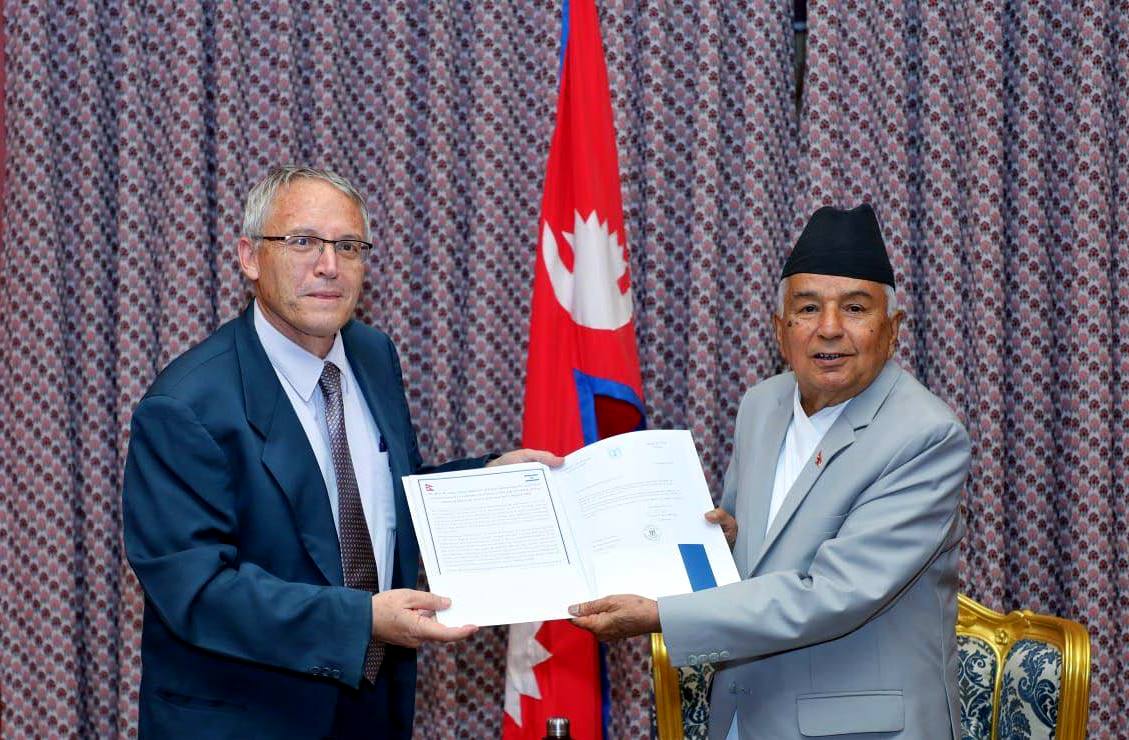
One of the outstanding problems of the new states is psychological adjustment. Democratic tradition is not strongly entrenched in the hearts of the people, and psychological change has yet to take place in their outlook. In the absence of a proper administration and technique, there is a strong tendency to abuse rights and liberties. Forced to live for centuries under a government alien to their wishes, they have an ingrained habit of viewing the government with suspicion. They have yet to realize that government under a democratic system is an instrument not of exploitation but of partnership in the glorious adventure of national reconstruction. Those who have taken the role of opposition also display a complete lack of understanding of this vital aspect of democracy and tend to be irresponsible and harmful to democracy itself.
The inheritance of extremely limited financial resources is another serious problem. The new states will find it extremely difficult to survive unless they can bring about a quick pace of economic development in their countries. In these countries, planning for prosperity is apt to move in a vicious circle. Development calls for investment, but the people are so impoverished that to ask them to tighten their belts a little more may mean in practice to advise them to go hungry.
Developed countries seem to think that a slightly higher rate of taxation could be our solution, but they forget that in these new countries taxation itself is a new thing, and therefore it would be highly erroneous to lean on it heavily, as is the practice in developed countries. Reliance on the growth of indigenous capital alone is also not a practical proposition for the moment. Foreign aid, as private investment and loans, appears to solve the problem considerably. But these again take a long time to materialize, not to mention the conditions under which they are attracted, such as stability, the credit-worthiness of the borrower, and a favorable climate for private enterprise. Ways have to be found to cut short the procedures, to insure adequate investment, domestic and foreign, and to economize on the cost of building up the infrastructure. These are, indeed questions not easy to solve.
Peculiar conditions prevailing in our part of the world have shown that certain countries have discarded democracy as a method for national development. Today, therefore, there is an issue as to whether the economic development shall be achieved by democratic or dictatorial methods. Lack of true opposition and imperfect psychological adjustment after independence seem to have lent popularity to dictatorship. The slow-moving progress under a struggling democratic system also has provided opportunity for dictatorship to catch the imagination of the people. Democracy as a political system or a way of life is on trial in these countries. The criterion is whether it can deliver the goods. The people have suffered poverty for so long that they clamor for quick results, and unless democracy can do something about it, there is a distinct possibility that the people may look to more extreme left sources for a fulfillment of their wishes. This is amply borne out by some of the recent happenings in Asia and Africa.
National development is the imperative need. Of the two alternatives, dictatorship postulates force, regimentation, and suppression of liberty, while democracy connotes argument, persuasion, and the fullest exercise of individual freedom. We stand for democracy and civil rights. We are also of the conviction that democracy is the superior method for national development. The pace of democratic process need not necessarily be slow. Popular cooperation does not necessarily call for regimentation. Democracy can very well enlist it, and we have practical experience of it. In the field of cooperative post offices we have made that experiment, and the mass participation in it was so enthusiastic that only recently we celebrated the setting up of the hundredth cooperative post office. In the recent Freedom-from-Hunger Campaign Week, the members of the government got down to actual field work, and the subsequent response from the people was so tremendous that it gave us ground to believe that the specter of hunger can be banished from the country. All we have to do is to provide a climate of mass participation which, of course, must come from the leadership. The creation of such a leadership is the great responsibility of the new democratic states, for on this depends the success or failure of socialism in these new states, where the fascination with dictatorship is always a danger.
It is here that the advance socialist countries have a significant role to play if the young socialist countries of Asia and Africa, relying on democratic methods, are to be saved from the dictatorial or communist alternative. Those nations that, within the democratic framework, have successfully battled for the socialist ideal of peacefully narrowing down the unequal distribution of national wealth, raising the standard of living of the masses, providing the minimum working hours and wages, guaranteeing employment, and running a number of social services, have now no such domestic ideals to arouse them. They might well now set before themselves the ideal of solving the pressing problems of the young democratic nations and also shoulder the historically supreme necessity of making available to their less fortunate socialist friends the technical knowledge and personnel they have gathered in the course of years and the financial resources they have at their disposal.
—
B.P. Koirala, Prime Minister of Nepal, addressing the opening of the International Conference on Science in the Advancement of New States at Rehovot, Israel, delivered on 15 August 1960.






